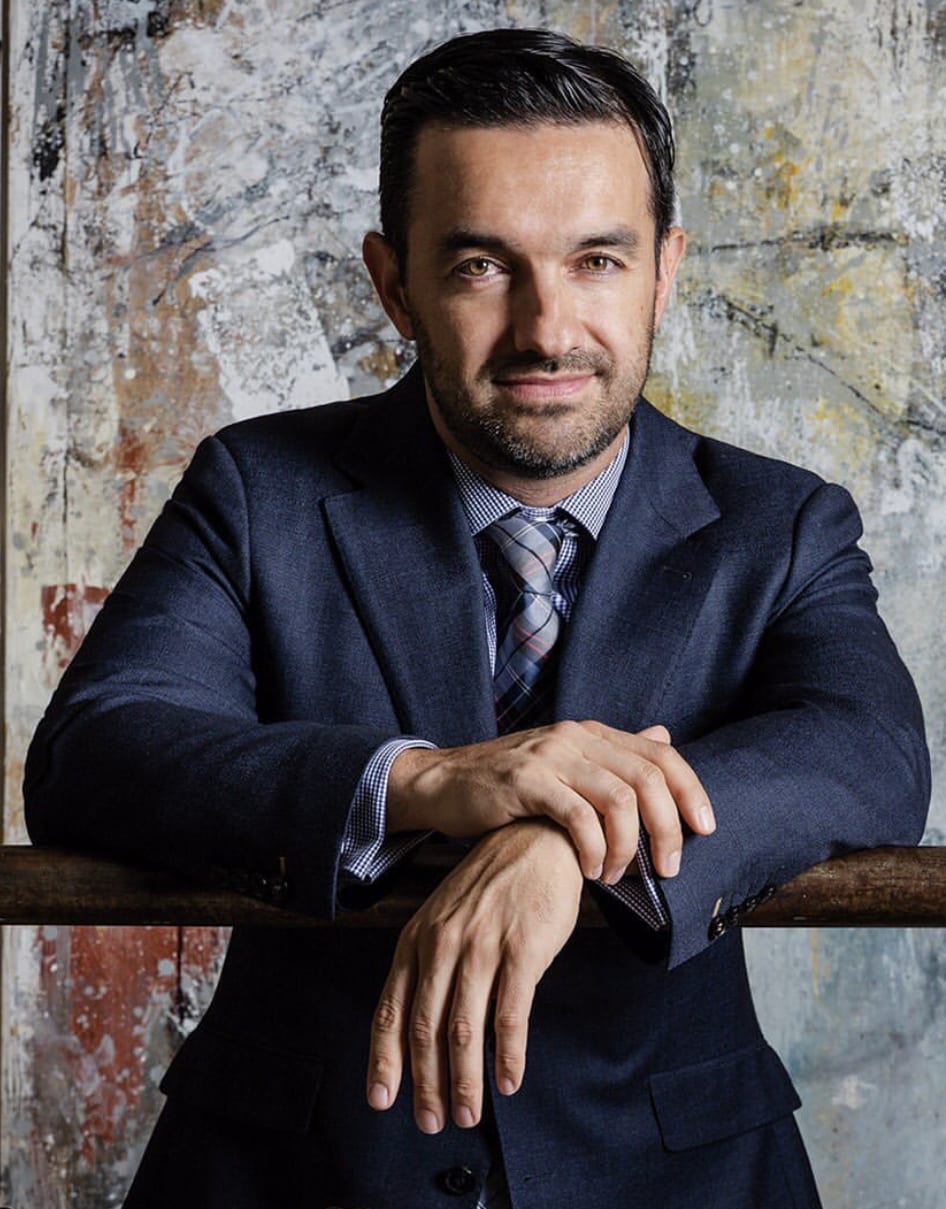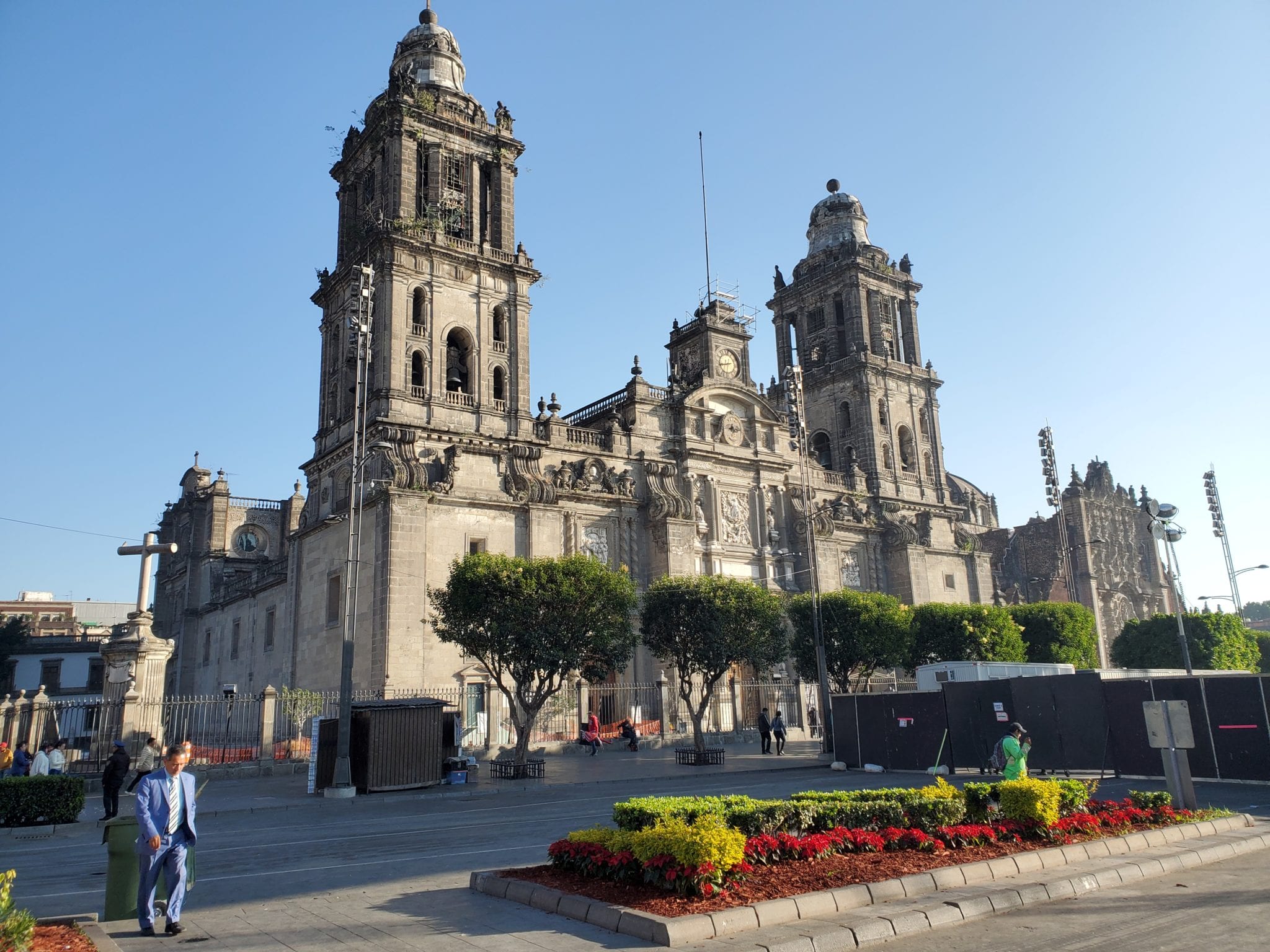As many remain hopeful that Mexico will legalize cannabis this year, the world’s largest recreational market won’t be up and running before 2022 in any case.
That’s according to Luis Armendáriz, a Chihuahua-based attorney who practices in international cannabis trade with Hoban Law Firm.
After the Mexican Senate approved a comprehensive adult-use cannabis bill last month, the pending legislation has faced a number of hurdles, including approval from the country’s lower chamber.
Update: The Mexican lower house decided Wednesday to delay passing the cannabis legalization bill until next legislative period, which begins in February 2021.

Luis Armendáriz is a Mexico-based attorney, and Hoban Law Group’s Head of Global Practice. Press photo
Last weekend, activists and industry experts like Armendáriz testified before committee members of the Chamber of Deputies in an 11th-hour effort to try and improve the bill. While industry stakeholders push for sensible regulations for research, industrial and adult uses, advocates continue to fight a number of provisions to better protect consumers’ rights and promote social equity.
Advocates have long argued that legalization would put a dent in organized crime, allow for safe consumption and create jobs.
Because the country was ordered by the Supreme Court to approve legalization law by Dec. 15, Armendáriz says the lower chamber could pass the bill as early as Wednesday. It will be a historic moment if approved, as Mexico will become the third country to legalize all use of cannabis behind Canada and Uruguay.
“We are trying to take advantage of the small window of opportunity to propose some changes,” Armendáriz said in a phone interview. “And then, we’re crossing our fingers that maybe mid-week it will be voted on.”
From there, the bill must return to the Senate for validation before getting signed off by President Andrés Manuel López Obrador and published into law Jan. 1.
Proposed legislation borrows elements from Uruguay, Canada as well as some U.S. states and would allow private companies to cultivate and sell weed to the public. But businesses will not be able to import or export psychoactive cannabis.
Read more: Are these countries next in line to legalize cannabis?
Big bureaucracy, delayed recreational rollout expected
However, if the Chamber of Deputies proposes any major changes to the bill, it could get delayed in the Senate and federal lawmakers will have to request a final extension from the Supreme Court to work out a final version. If that scenario unfolds, Armendáriz expects the bill to pass sometime early 2021 when Congress re-opens from winter break in February.
The sooner the better, he says, because after legislation is approved a cannabis agency must be established and secondary rules written before any sales can take place.
Mexico first legalized cannabis for medical and scientific use in 2017, when the country reformed its health laws. Regulations for a medical market are also soon expected to get final executive approval.
Training thousands of public servants on how to regulate new industry is going to be a huge task, Armendáriz says.
“It’s a concern that we will have eventually, with respect to the new agency and the new public officers,” he says. “Who is going to lead it? Will it be led by people that know and are familiar with the industry?”

Mexican Senator Jesusa Rodríguez of the ruling Morena party displayed a cannabis plant on her desk weeks before the chamber voted to pass a recreational cannabis bill in November. Photo courtesy of Jesusa Rodríguez
The Mexican Institute for Cannabis Regulation and Control is expected to take six months to set up after the bill is enacted. The new agency will be in charge of regulating industrial hemp, adult-use cannabis and research of the plant.
Licences will be issued gradually for five purposes: cultivation, processing, sale, international trade and research.
The agency will first issue licences for industrial hemp production as well as the manufacturing and sale of non-psychoactive products like CBD after six months. Hemp will be defined as cannabis plants containing less than 1 per cent THC. However, a clear distinction between hemp for industrial uses like plastics, biofuels and textiles, in contrast to hemp for human consumption has yet to be established.
“People are eager to start applying for these licences, but I’d say we’re going to have to wait one year to see what happens with the new agency and the secondary rules,” Armendáriz says.
As for the production, processing and sale of adult-use cannabis, Armendáriz notes that licences won’t be issued for 12–18 months after the agency is created.
“So, I wouldn’t expect on having an adult use legal market before 2022,” he says.
How the agency ends up regulating the sector is significant because it will dictate everything from the allowed CBD-to-THC ratio for non psychoactive cannabis products, licence application requirements, sanitary rules for production and pet products.
‘The law can be improved, and it can still be reformed‘

Zara Snapp, co-founder of the RIA Institute, a Mexico City-based drug policy research and advocacy group. Press photo
As of today, it’s difficult to predict what a regulated market will actually look like in Mexico.
That’s why advocates have been working tirelessly to ensure the proposed bill restores justice to communities worst affected by the domestic war on drugs, says Zara Snapp, co-founder of the RIA Institute, a Mexico City-based drug policy research and advocacy group.
When the law was being revised in the Senate, advocates successfully pushed to have the initial limit of four self-cultivated plants per person up to six. And people who grow weed for personal use will no longer be subject to have their plants registered and tracked by Mexico’s regulator.
But there are still a number of provisions that are concerning to advocates.
The law doesn’t specifically remove simple possession as a crime, but would technically allow a person to carry up to 28 grams, Snapp says. And between 28–200 grams, a fine could be imposed. Possession over 200 grams could lead to a criminal offence.
“Unfortunately, in the Mexican context the most likely scenario when you have a run-in with the police officers is that they will try to extort you. By putting a low threshold such as 28 grams or imposing a fine of up to 11,000 pesos, you are essentially putting a price tag on what that extortion should be,” Snapp told Mugglehead in an email.
Advocates say the current legal framework favours large corporations over small businesses. Snapp wants to ensure some of Mexico’s traditional cannabis farmers are brought in from the illicit market to the licit one.
Read more: Global NGO network outlines 20 ways to make cannabis industries equitable

The Mexican army eradicating illegal crops in 2003. Photo by oswaldo via Flickr
Under the proposed law, commercial sellers are required to provide strict seed-to-sale product testing and tracing. While those requirements would be near-impossible for a rural grower to meet, Snapp says guidelines have been revised based on whether the grower has access to important infrastructure like electricity and running water.
Other restrictions under scrutiny include restricting licence holders to cultivate only one hectare outdoors, or 1,000 square metres indoor.
Advocates have fought to have 80 per cent of cultivation licences awarded to communities impacted by prohibition. They settled for 40 per cent.
Snapp says her team fought to limit vertical integration in larger companies, which includes limitations on holding production, processing and sales licences, but not for smaller granjeros. However, that item was removed from the bill.
“Overall, I still do believe that the social justice aspect of the law could have an impact if it is implemented with great intention and purpose,” she says.
“The law can be improved, and it can still be reformed, and we can pass a larger decriminalization bill, but it is a step in the right direction.”
jared@mugglehead.com
@JaredGnam














